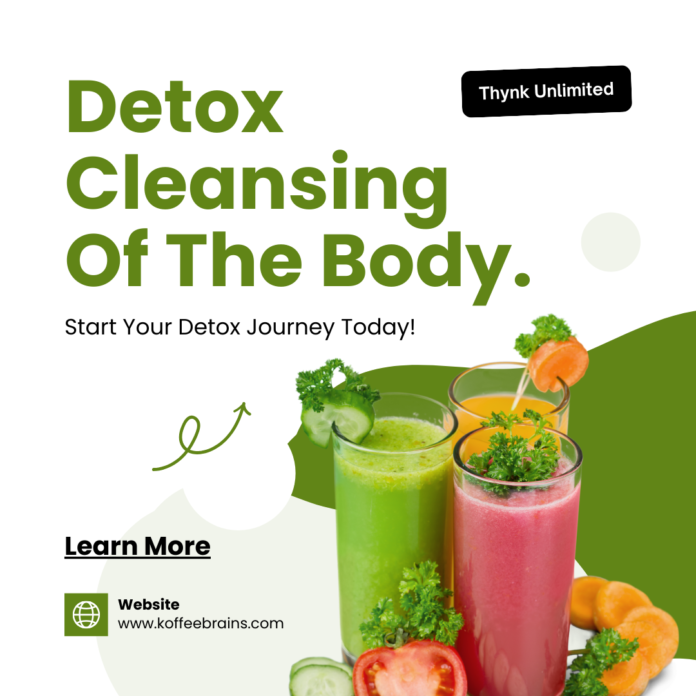
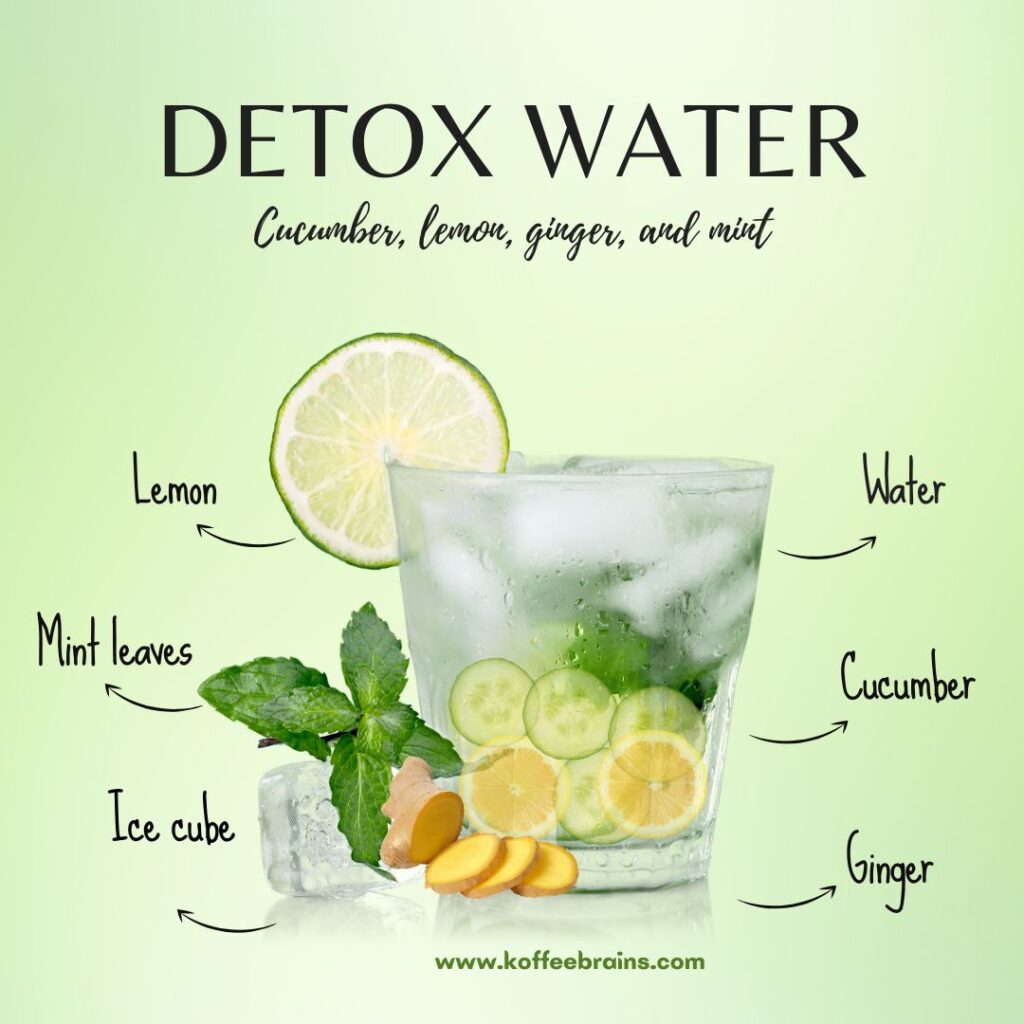
Table of Contents
Introduction
Feeling sluggish, tired, or just out of sorts? It might be time for a detox. Detoxing has gained popularity as a way to reset your body and improve overall health. But what does detoxing really involve, and how can you do it effectively? This guide will take you through everything you need to know about detoxing your body, from understanding the basics to implementing practical strategies.
What is Detoxing?
Detoxing refers to the process of removing toxins from the body. These toxins can come from various sources like the environment, food, and even our own metabolic processes. Historically, detoxing practices can be traced back to ancient civilizations, where natural methods were used to cleanse the body and improve health.
Why Detox Your Body?
Detoxing offers numerous benefits. It can help improve digestion, boost energy levels, enhance mental clarity, and even aid in weight loss. Signs that you might need a detox include fatigue, frequent headaches, digestive issues, and skin problems. By eliminating toxins, you give your body a chance to function more efficiently.
Common Toxins in the Body
Toxins are everywhere. Environmental toxins include pollutants and chemicals we encounter daily. Dietary toxins come from processed foods, additives, and pesticides. Lifestyle toxins are those from habits like smoking, alcohol consumption, and stress. Understanding these sources can help you take steps to minimize exposure.
Methods of Detoxing
There are various ways to detox your body, including natural methods, detox diets, and specialized detox programs and retreats. Each method has its own approach and benefits, catering to different needs and lifestyles.
Natural Detox Methods
- Hydration: Drinking plenty of water is crucial for flushing out toxins. Aim for at least 8 glasses a day.
- Exercise: Physical activity helps sweat out toxins and boosts circulation.
- Breathing Techniques: Deep breathing exercises can improve oxygen flow and help detoxify the lungs.
Detox Diets
Detox diets focus on consuming foods that aid in detoxification while eliminating those that contribute to toxin build-up.
- Juice Cleanses: These involve consuming only fruit and vegetable juices for a period, providing a concentrated dose of vitamins and antioxidants.
- Whole Food Detox: This approach emphasizes eating whole, unprocessed foods that are rich in nutrients and fiber.
Foods That Aid Detoxification
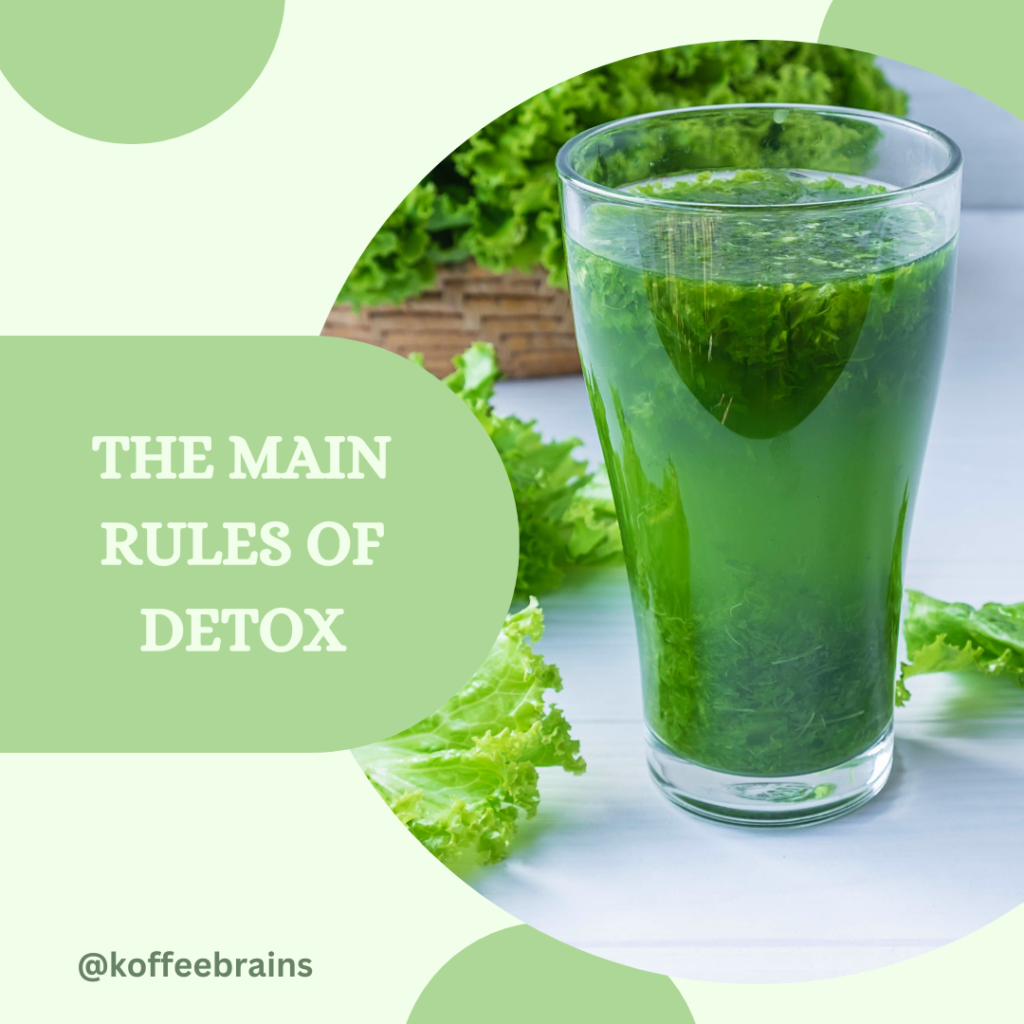
Certain foods are particularly effective at supporting the body’s detox processes:
- Fruits and Vegetables: Berries, citrus fruits, leafy greens, and cruciferous vegetables like broccoli and kale are excellent choices.
- Herbs and Spices: Turmeric, ginger, and garlic have potent detoxifying properties.
- Superfoods: Foods like chia seeds, flaxseeds, and spirulina are packed with nutrients that aid detoxification.
Detox Programs and Retreats
For a more structured approach, detox programs and retreats offer professional guidance and support. These programs typically include a combination of dietary changes, physical activities, and relaxation techniques. Choosing the right program depends on your personal goals and health needs.
Detoxing at Home
You don’t need to go to a retreat to detox effectively. Here’s how you can create a detox plan at home:
- Create a Detox Plan: Set clear goals and outline the steps you’ll take.
- DIY Detox Recipes: Incorporate simple, healthy recipes into your diet. Think green smoothies, vegetable soups, and herbal teas.
- Home Detox Practices: Include practices like dry brushing, Epsom salt baths, and meditation to support your detox journey.
Supporting Your Detox
Detoxing isn’t just about diet; it’s also about taking care of your overall well-being:
- Importance of Rest: Adequate sleep is essential for the body to repair and regenerate.
- Mental and Emotional Detox: Practices like mindfulness, journaling, and spending time in nature can help detox your mind and emotions.
- Supplements and Herbal Teas: Supplements like milk thistle, probiotics, and herbal teas can support liver function and overall detoxification.
Potential Risks of Detoxing
While detoxing can offer many benefits, it’s important to be aware of potential risks:
- Understanding the Risks: Rapid detox methods or extreme diets can lead to nutrient deficiencies and other health issues.
- Who Should Avoid Detoxing: Pregnant or breastfeeding women, individuals with certain health conditions, and those on specific medications should consult a healthcare provider before starting a detox.
Post-Detox: Maintaining a Healthy Lifestyle
After completing a detox, maintaining a healthy lifestyle is key to sustaining the benefits:
- Healthy Eating Habits: Continue to eat a balanced diet rich in whole foods.
- Regular Exercise: Keep up with regular physical activity to support ongoing detoxification.
- Continued Avoidance of Toxins: Minimize exposure to toxins by choosing natural products and avoiding processed foods.
Success Stories
Hearing about others’ experiences can be inspiring. Many people report feeling rejuvenated and more energetic after a detox. Personal accounts and inspirational quotes can motivate you to start your own detox journey.
Conclusion
Detoxing your body can be a powerful way to reset your health and well-being. By understanding the process and choosing the right methods, you can effectively remove toxins and support your body’s natural functions. Start your detox journey today and experience the benefits for yourself!
FAQs
- What are the best foods for detoxing?
- The best foods for detoxing include berries, citrus fruits, leafy greens, cruciferous vegetables, turmeric, ginger, garlic, chia seeds, and spirulina.
- How often should I detox my body?
- It depends on your lifestyle and health needs, but many experts recommend a seasonal detox (every three to four months).
- Can detoxing help with weight loss?
- Yes, detoxing can help jumpstart weight loss by eliminating toxins that may interfere with metabolism and reducing inflammation.
- Are there any side effects of detoxing?
- Some people may experience temporary side effects like headaches, fatigue, or digestive changes as the body adjusts.
- What is the easiest detox method for beginners?
- Starting with simple changes like increasing water intake, eating more fruits and vegetables, and reducing processed foods can be an easy and effective way to begin detoxing.
Success Stories
Many individuals have shared their inspiring success stories after completing a detox. Here are a few to motivate you:
- Jane’s Journey to Vitality: Jane, a busy mother of two, felt constantly fatigued and struggled with digestive issues. After a 10-day whole food detox, she reported increased energy, clearer skin, and better digestion. She continues to incorporate detox principles into her daily life, maintaining a balanced diet and regular exercise.
- Mark’s Mental Clarity Boost: Mark, a corporate executive, experienced brain fog and low productivity. He embarked on a week-long juice cleanse and noticed significant improvements in mental clarity and focus. Mark now integrates intermittent fasting and mindfulness practices into his routine to keep his mind sharp.
- Emily’s Weight Loss Success: Emily battled with her weight for years. She started with a simple detox plan, eliminating processed foods and incorporating more fruits and vegetables. Over several months, she lost 20 pounds and felt more confident and healthy. Emily’s journey emphasizes the importance of gradual, sustainable changes.
Conclusion
Detoxing your body is a transformative journey that can lead to improved health, vitality, and overall well-being. By understanding the different methods, choosing the right foods, and supporting your body through the process, you can effectively eliminate toxins and rejuvenate your system. Whether you opt for a structured program or a simple at-home detox, the benefits are profound. Start your detox journey today and embrace a healthier, more vibrant you!
FAQs
- What are the best foods for detoxing?
- The best foods for detoxing include berries, citrus fruits, leafy greens, cruciferous vegetables, turmeric, ginger, garlic, chia seeds, and spirulina. These foods are rich in antioxidants, vitamins, and minerals that support detoxification.
- How often should I detox my body?
- It depends on your lifestyle and health needs, but many experts recommend a seasonal detox (every three to four months). Listening to your body and consulting with a healthcare provider can help determine the best frequency for you.
- Can detoxing help with weight loss?
- Yes, detoxing can help jumpstart weight loss by eliminating toxins that may interfere with metabolism and reducing inflammation. Additionally, detoxing often involves healthier eating habits, which can support long-term weight management.
- Are there any side effects of detoxing?
- Some people may experience temporary side effects like headaches, fatigue, or digestive changes as the body adjusts to a detox. These symptoms are usually short-lived and can be managed by staying hydrated and getting plenty of rest.
- What is the easiest detox method for beginners?
- Starting with simple changes like increasing water intake, eating more fruits and vegetables, and reducing processed foods can be an easy and effective way to begin detoxing. Gradually incorporating more detox practices can help ease the transition and ensure a successful detox experience.
Advanced Detox Techniques
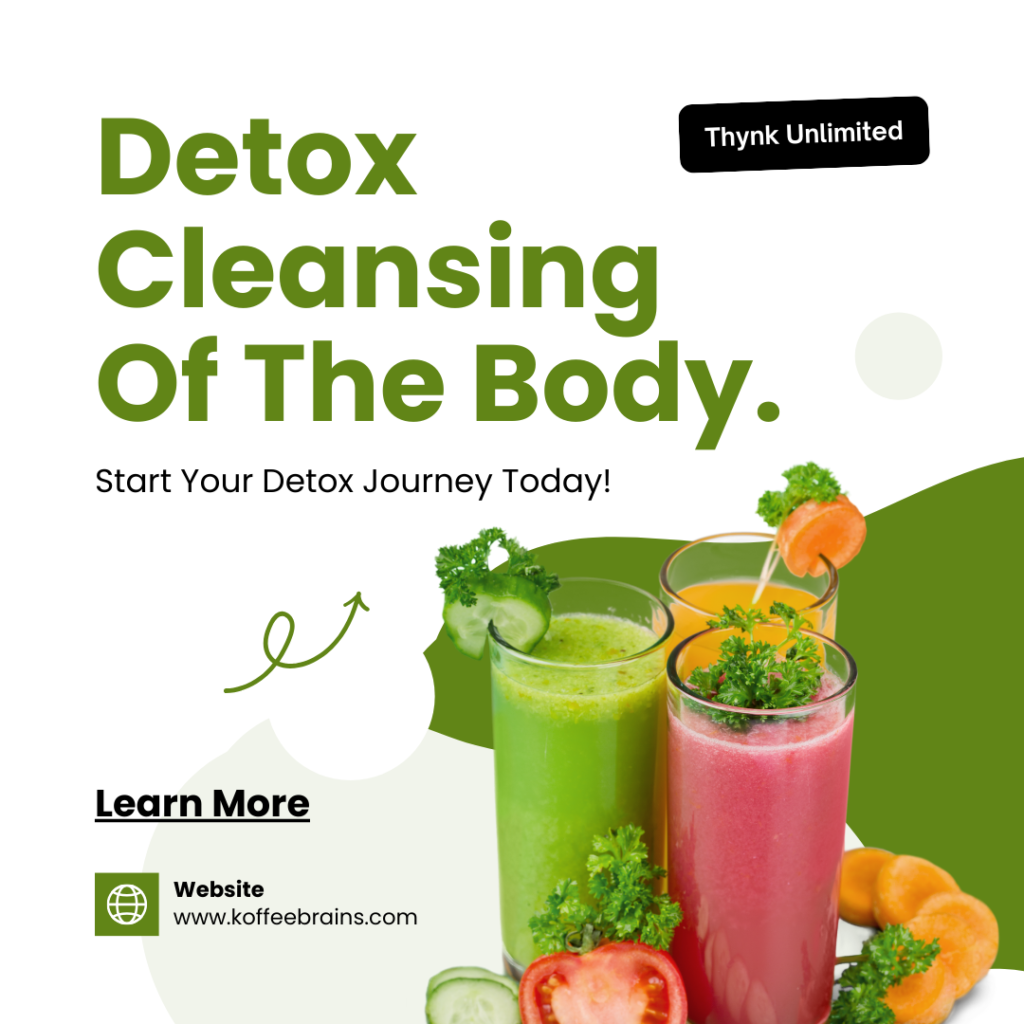
Once you’re comfortable with basic detox methods, you might want to explore more advanced techniques. These can provide deeper cleansing and rejuvenation.
Advanced Detox Techniques
- Intermittent Fasting: This involves cycling between periods of eating and fasting. It’s been shown to improve metabolism, reduce inflammation, and promote cellular repair.
- Colon Cleansing: Methods like enemas and colon hydrotherapy can help clear the colon of waste. However, these should be done under professional guidance.
- Liver Detox: The liver is a key organ in detoxification. Supporting liver function with specific herbs like milk thistle, dandelion root, and turmeric can enhance its detox capacity.
- Infrared Sauna Therapy: Infrared saunas use light to create heat, promoting sweating and the release of toxins. This method can also improve circulation and skin health.
- Detox Baths: Epsom salt baths can help draw out toxins through the skin, while adding essential oils like lavender or eucalyptus can enhance relaxation and detoxification.
Mental and Emotional Detox
Detoxing isn’t just physical. Mental and emotional cleansing is crucial for overall well-being.
- Mindfulness and Meditation: Regular mindfulness practice can reduce stress, improve mental clarity, and foster emotional balance.
- Journaling: Writing down your thoughts and feelings can help process emotions and release mental clutter.
- Digital Detox: Taking breaks from screens and social media can reduce stress and improve focus. Aim for at least one screen-free hour per day.
Detox Myths Debunked
With the popularity of detoxing, several myths have emerged. Let’s debunk some common misconceptions.
- Myth: Detoxing is only about diet.
- Fact: Detoxing involves a holistic approach, including lifestyle changes, mental well-being, and physical activity.
- Myth: Detoxes are a quick fix for weight loss.
- Fact: While detoxing can aid in weight loss, sustainable weight management requires ongoing healthy habits.
- Myth: All detox products are safe and effective.
- Fact: Not all detox products are created equal. It’s important to research and choose those that are safe and backed by scientific evidence.
Incorporating Detox Practices into Daily Life
Detoxing doesn’t have to be a one-time event. Incorporating detox practices into your daily routine can support continuous health.
- Morning Rituals: Start your day with a glass of warm lemon water to kickstart digestion and hydration.
- Balanced Meals: Incorporate detoxifying foods like leafy greens, berries, and herbs into your meals regularly.
- Regular Exercise: Consistent physical activity supports detoxification through sweating and improved circulation.
- Mindfulness: Practice mindfulness or meditation daily to maintain mental and emotional balance.
Finding Balance
The key to successful detoxing is balance. Listen to your body and adjust your detox practices as needed. Overdoing it can lead to negative side effects, so it’s essential to approach detoxing with moderation and care.
Conclusion
Detoxing your body is a powerful step towards achieving optimal health and well-being. By understanding the different methods and integrating them into your lifestyle, you can effectively eliminate toxins and support your body’s natural functions. Remember, detoxing is a journey, not a destination. Start with small changes, listen to your body, and enjoy the process of becoming healthier and more vibrant.
FAQs
- What are the best foods for detoxing?
- The best foods for detoxing include berries, citrus fruits, leafy greens, cruciferous vegetables, turmeric, ginger, garlic, chia seeds, and spirulina. These foods are rich in antioxidants, vitamins, and minerals that support detoxification.
- How often should I detox my body?
- It depends on your lifestyle and health needs, but many experts recommend a seasonal detox (every three to four months). Listening to your body and consulting with a healthcare provider can help determine the best frequency for you.
- Can detoxing help with weight loss?
- Yes, detoxing can help jumpstart weight loss by eliminating toxins that may interfere with metabolism and reducing inflammation. Additionally, detoxing often involves healthier eating habits, which can support long-term weight management.
- Are there any side effects of detoxing?
- Some people may experience temporary side effects like headaches, fatigue, or digestive changes as the body adjusts to a detox. These symptoms are usually short-lived and can be managed by staying hydrated and getting plenty of rest.
- What is the easiest detox method for beginners?
- Starting with simple changes like increasing water intake, eating more fruits and vegetables, and reducing processed foods can be an easy and effective way to begin detoxing. Gradually incorporating more detox practices can help ease the transition and ensure a successful detox experience.
Detox Maintenance: Long-Term Strategies
To maintain the benefits of detoxing, it’s important to incorporate long-term strategies into your daily life. These practices will help you stay toxin-free and support overall health.
- Stay Hydrated: Drinking plenty of water every day is crucial for ongoing detoxification. Water helps flush out toxins and keeps your body functioning optimally.
- Eat a Balanced Diet: Focus on a diet rich in whole foods, including plenty of fruits, vegetables, lean proteins, and healthy fats. Avoid processed foods, excessive sugars, and artificial additives.
- Regular Exercise: Incorporate a mix of cardiovascular exercise, strength training, and flexibility exercises into your routine. Regular physical activity promotes sweating and helps the body eliminate toxins.
- Get Adequate Sleep: Sleep is essential for the body’s repair and detoxification processes. Aim for 7-9 hours of quality sleep each night.
- Stress Management: Chronic stress can hinder the body’s ability to detoxify. Practice stress-reducing techniques such as yoga, meditation, deep breathing exercises, and spending time in nature.
- Mindful Eating: Pay attention to what and how you eat. Chew your food thoroughly, eat slowly, and listen to your body’s hunger and fullness cues. This practice aids digestion and nutrient absorption.
- Limit Alcohol and Caffeine: Excessive alcohol and caffeine can burden your liver and other detox organs. Moderate your intake to support your body’s natural detoxification processes.
- Choose Natural Products: Reduce your exposure to toxins by choosing natural, non-toxic products for cleaning, personal care, and beauty. Avoid products with harmful chemicals and opt for those made with natural ingredients.
- Regular Detox Practices: Periodically incorporate detox practices such as detox baths, dry brushing, and herbal teas into your routine to support ongoing detoxification.
Incorporating Superfoods for Detox
Superfoods are nutrient-dense foods that provide a range of health benefits, including supporting detoxification. Here are some superfoods to include in your diet:
- Chlorella: This green algae is known for its detoxifying properties, particularly in removing heavy metals from the body.
- Spirulina: Rich in antioxidants, spirulina supports liver function and boosts the immune system.
- Beets: Beets are high in betaine, which helps the liver process toxins and supports overall detoxification.
- Cilantro: This herb is effective in binding to heavy metals and helping to remove them from the body.
- Avocado: Avocados contain glutathione, a powerful antioxidant that supports liver detoxification.
Creating a Personalized Detox Plan
A personalized detox plan can help you achieve your specific health goals and accommodate your unique lifestyle. Here are some steps to create your plan:
- Set Clear Goals: Determine what you want to achieve with your detox, such as increased energy, improved digestion, or weight loss.
- Assess Your Lifestyle: Consider your current diet, exercise routine, stress levels, and toxin exposure. Identify areas for improvement.
- Choose Your Methods: Decide which detox methods and practices align with your goals and lifestyle. This could include dietary changes, physical activities, and relaxation techniques.
- Create a Schedule: Plan your detox activities and meals. Set aside time for exercise, meal preparation, and self-care practices.
- Monitor Your Progress: Keep track of your progress and how you feel throughout the detox. Make adjustments as needed to ensure you are on track to meet your goals.
Listening to Your Body
Your body will give you signals about how it’s responding to the detox. Pay attention to these signals and adjust your approach accordingly:
- Energy Levels: Notice how your energy levels change. If you feel more energized, you’re on the right track. If you feel excessively tired, you may need to adjust your detox methods.
- Digestion: Improved digestion is a sign that your detox is working. If you experience digestive discomfort, consider modifying your diet or detox practices.
- Mental Clarity: Enhanced mental clarity and focus indicate that your body is benefiting from the detox. If you feel foggy, it might be a sign to review your detox plan.
- Mood: A better mood and reduced stress levels are positive indicators. If you feel irritable or anxious, ensure you’re incorporating enough rest and relaxation into your detox.
Staying Motivated
Detoxing can be challenging, especially if you’re making significant lifestyle changes. Here are some tips to stay motivated:
- Set Achievable Goals: Break your detox goals into smaller, manageable steps. Celebrate each milestone to stay motivated.
- Find Support: Join a detox group or enlist a friend to join you on your detox journey. Support from others can keep you accountable and motivated.
- Educate Yourself: Learn about the benefits of detoxing and the science behind it. Understanding the reasons for detoxing can strengthen your commitment.
- Track Your Progress: Keep a journal of your detox experience, noting any positive changes and challenges you face. This can help you stay focused and motivated.
Conclusion
Detoxing your body is a comprehensive and rewarding journey that can lead to improved health, vitality, and overall well-being. By understanding the various methods, choosing the right foods, and supporting your body through the process, you can effectively eliminate toxins and rejuvenate your system. Remember, detoxing is not a one-time fix but a continuous process of maintaining a healthy lifestyle. Start with small changes, listen to your body, and enjoy the journey to a healthier, more vibrant you!
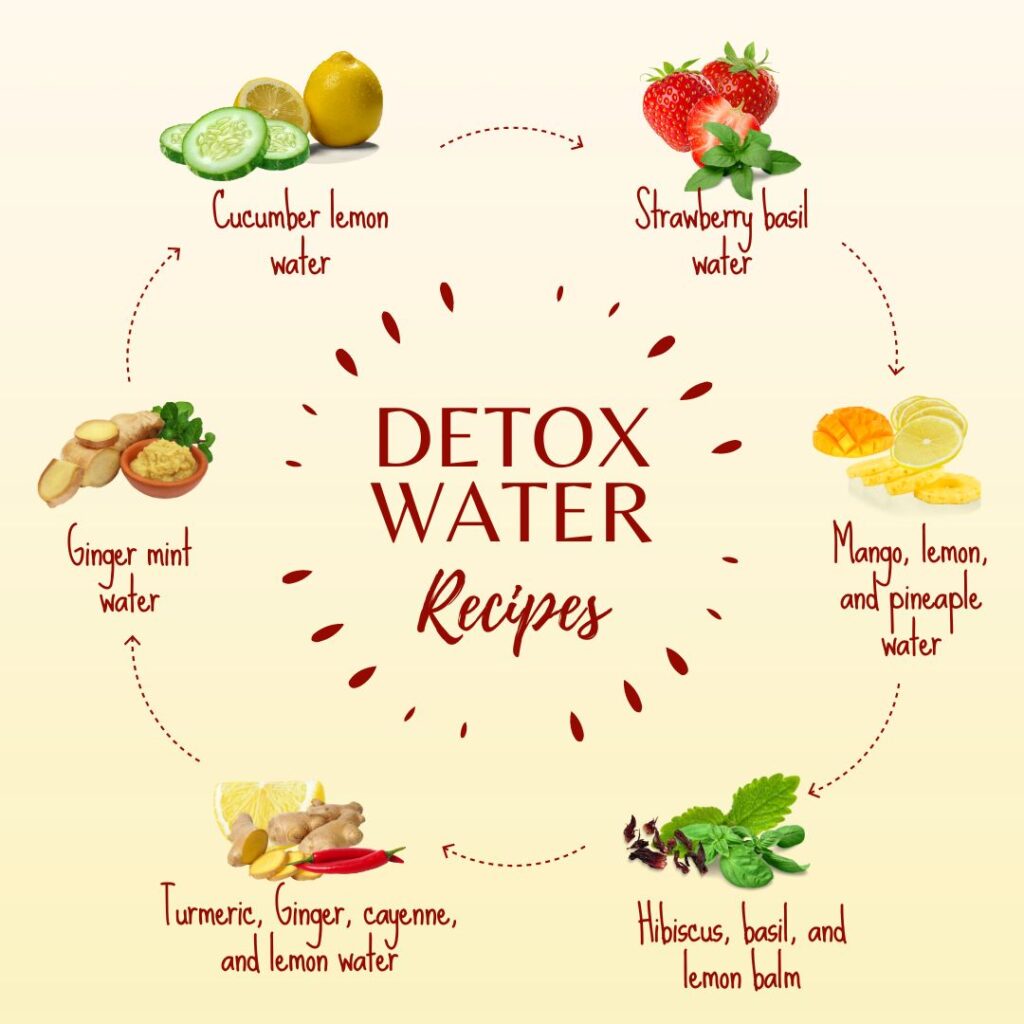
FAQs
- What are the best foods for detoxing?
- The best foods for detoxing include berries, citrus fruits, leafy greens, cruciferous vegetables, turmeric, ginger, garlic, chia seeds, and spirulina. These foods are rich in antioxidants, vitamins, and minerals that support detoxification.
- How often should I detox my body?
- It depends on your lifestyle and health needs, but many experts recommend a seasonal detox (every three to four months). Listening to your body and consulting with a healthcare provider can help determine the best frequency for you.
- Can detoxing help with weight loss?
- Yes, detoxing can help jumpstart weight loss by eliminating toxins that may interfere with metabolism and reducing inflammation. Additionally, detoxing often involves healthier eating habits, which can support long-term weight management.
- Are there any side effects of detoxing?
- Some people may experience temporary side effects like headaches, fatigue, or digestive changes as the body adjusts to a detox. These symptoms are usually short-lived and can be managed by staying hydrated and getting plenty of rest.
- What is the easiest detox method for beginners?
- Starting with simple changes like increasing water intake, eating more fruits and vegetables, and reducing processed foods can be an easy and effective way to begin detoxing. Gradually incorporating more detox practices can help ease the transition and ensure a successful detox experience.




















